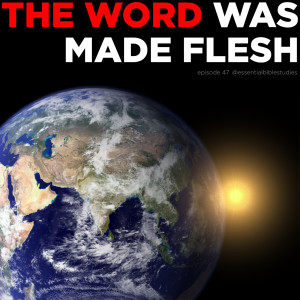
In conjunction with last week’s podcast from John 1:1, Jay and Tim consider the context and the importance of verse 14, “the Word was made flesh”. What is it about Jesus being flesh that is so crucial to his sacrifice? Does it contradict the doctrine of the Trinity? How are we to understand this glory that was seen? The scriptures lead us to the wonderful conclusion that we will all eventually share in the divine nature, Jesus being the first among many.
Key Verse:
“And the Word became flesh and dwelt among us, and we have seen his glory, glory as of the only Son from the Father, full of grace and truth.” John 1:14
Show Notes:
The Importance of Jesus Being Flesh
- Flesh and blood the same as our nature (Hebrews 2:14) the key to the sacrifice of Christ.
- Had to be tempted like us (Hebrews 4:14-15). God cannot be tempted (James 1:13).
- Flesh is sinful! This is why his obedience is such a wonder. He had to overcome the temptations of flesh like no other man.
Made Flesh: What it Doesn’t Mean
- Revisiting the definition of the Trinity and the nature of Jesus and God
- Was Jesus the God-man? Is he just a man? Neither is true.
- Jesus was a special creation made strong by his Father (John 3:34; 2 Cor. 5:19)
We Have Seen His Glory
- What is glory? Both moral and physical.
- The moral glory (Exodus 34:6 cp. John 1:14). The wider purpose of God to fill the earth with this glory (Numbers 14:21; Isaiah 11:9; Habakkuk 2:14).
- His physical glory – the example and meaning of the transfiguration (2 Peter 1:16-18). Jesus the first to be transformed (Philippians 3:20-21; 2 Peter 1:4).
- The Apostle saw both of these glories (1 John 1:1-3)
Follow us on...
Facebook: https://www.facebook.com/essentialbiblestudies
Instagram: https://www.instagram.com/essentialbiblestudies/
X: https://x.com/bible_podcast
Get it...
Get an invite to our Tuesday night Bible Studies at essentialbiblestudies.org
Request a free Essential Bible Studies media kit
No comments yet. Be the first to say something!